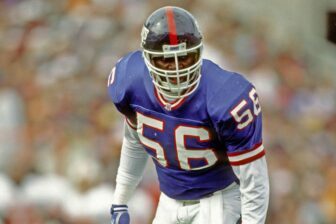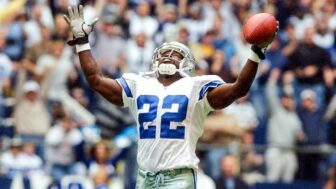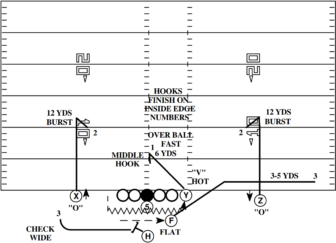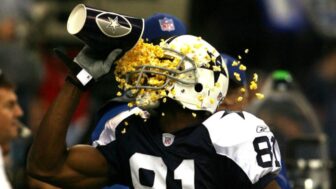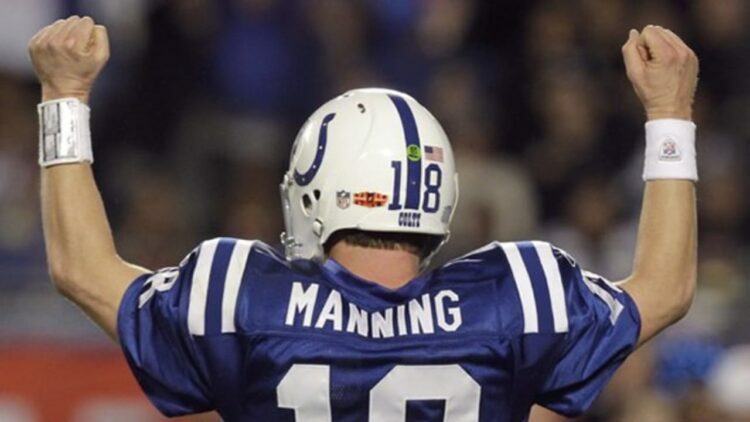
In winning his seventh Super Bowl last season, Tom Brady has solidified his position as the greatest quarterback of all time. But there are two players that are often compared and analyzed when it comes to taking that second spot. Joe Montana and Peyton Manning are both undisputed Hall of Fame players who own multiple rings and dozens of accolades. Yet, only one can come out on top in this edition of the NFL GOAT Debate.
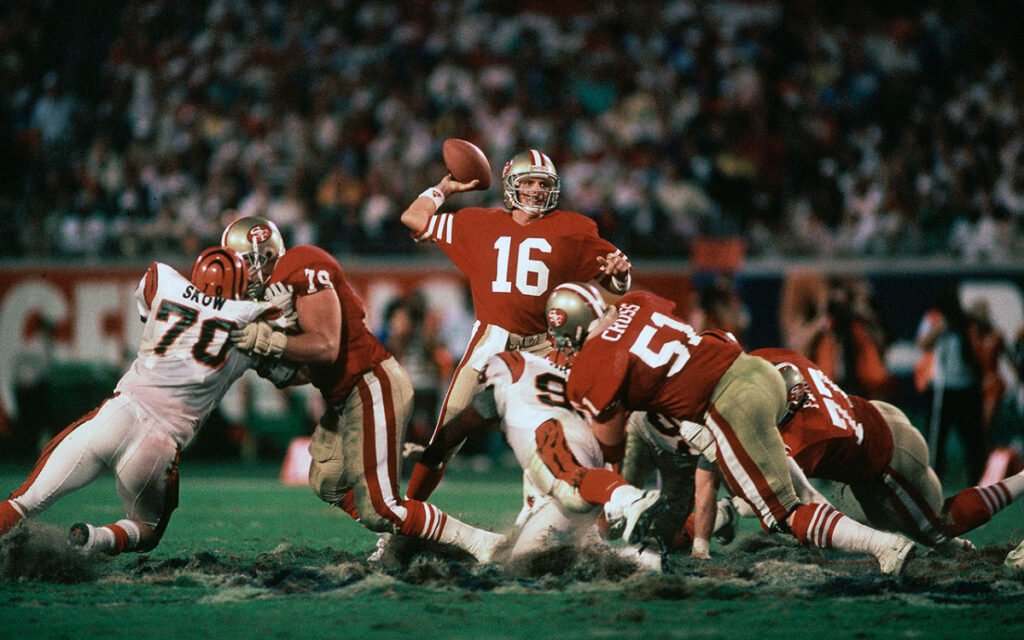
STATS
There may be no quarterback who is statically as dominant as Peyton Manning. In his 17 seasons he passed for 4,000 or more yards in 14 of them. He is third in all-time passing yards and passing touchdows and fourth in all-time completions. Manning’s innate ability to read a defense in the flow of a game and adjust on the fly made it almost impossible to stop his passing attack. Not only was Manning impactful during his younger years, but even after a potentially career ending neck injury and transition to a new team, he somehow continued to get better. In his first three years with the Broncos the signal caller averaged 4,954 passing yards, 43 passing touchdowns, and posted a 38-10 record. Despite being in his late thirties during his run with the Broncos he still managed arguably the greatest quarterbacking season of all time. In that season he set the records for single season passing yards (5,477) and passing touchdowns (55). Besides his final season in 2015 and injury in 2011 Manning never missed a game and would walk away from the NFL with a 70% winning percentage and the second most wins ever trailing only Tom Brady.
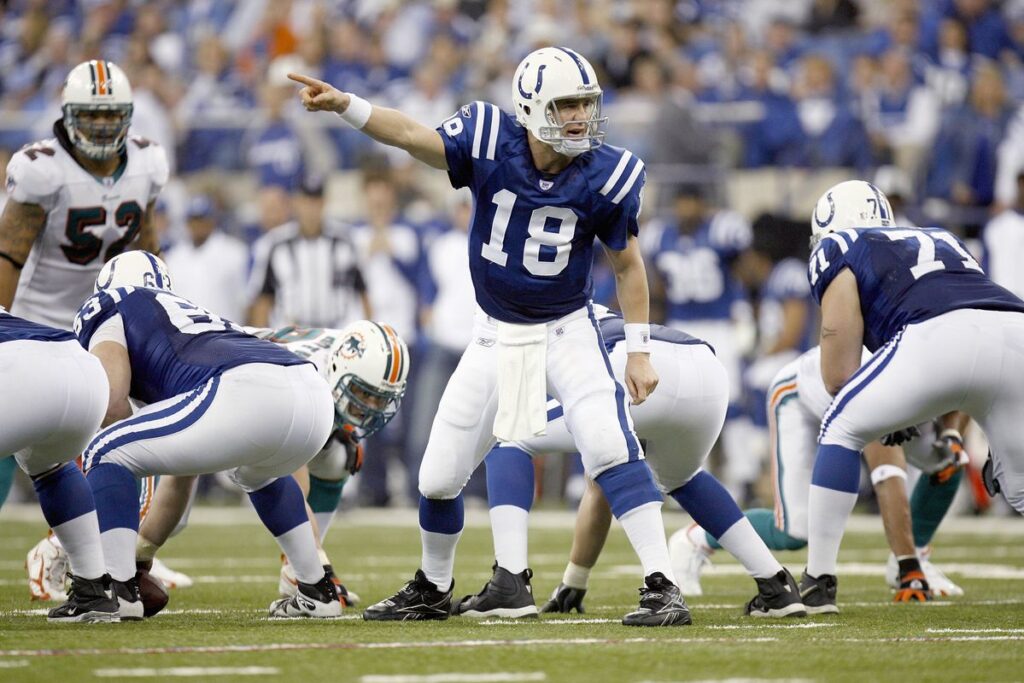
Similar to Manning, Montana had his age 35 season lost to injury. Unlike Manning, he did not produce record setting stats every year. While Manning ranks in the top four for passing yards, completions, and passing touchdowns; Montana sits 21st, 20th and 18th respectively in those categories. In fact, Montana’s single season high of 3,944 passing yards was barely able to beat out Manning’s rookie season total of 3,739 yards. In the Montana’s defense, offenses were much more conservative at the time as he only attempted over 500 passes once while Manning did so 14 times. Despite not posting the same gaudy passing numbers, Montana does hold an overall better career winning percentage having been victorious in 71% of his started games. To some, winning games is the only stat that matters at the end of the day.
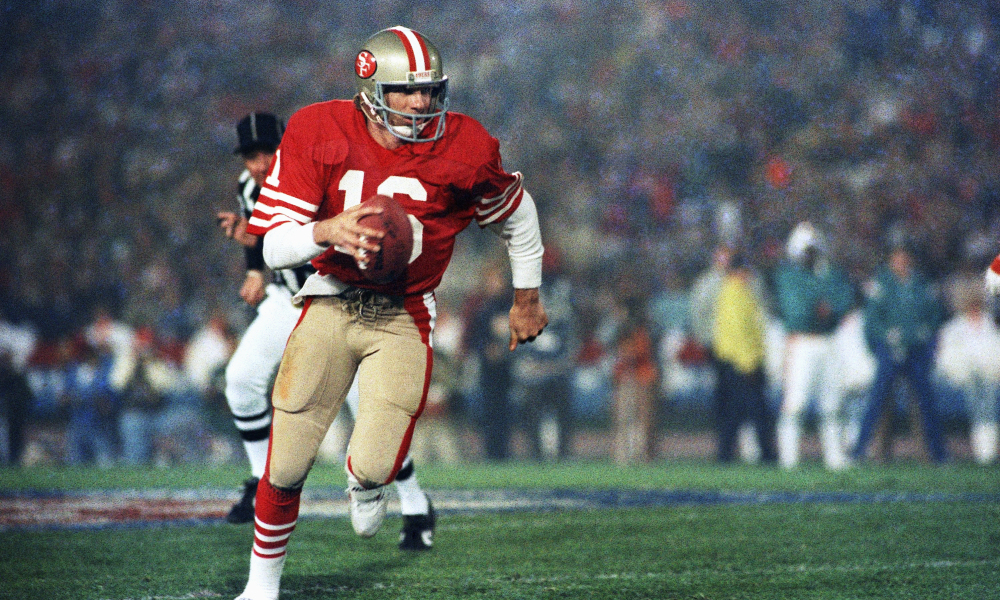
Montana was a winner throughout his career. He was able to squeeze out great efficiency despite not playing in an era that relied heavily on the pass. But Manning is in a league of his own when it comes to slinging the football. When it comes to pushing the ball down the field and finding the endzone few players have done so as consistently and frequently as the recently enshrined Hall of Famer.
EDGE: Manning
AWARDS
Joe Montana has quite the trophy case. When he retired, he was a four-time Super Bowl winner, a two-time league MVP, was nominated to eight Pro-Bowls, and was named a three-time All-Pro quarterback. Despite going toe-to-toe with other great QBs such as John Elway and Dan Marino, Montana managed to win more MVPs, Super Bowls, and Super Bowl MVPs. Even though he lacked some of the statistics modern fans may associate with great quarterbacks, Montana did still manage to win Offensive Player of the Year in 1989 and led the league in passing touchdowns in both 1982 and 1987. His yardage may have never been at the top of the league, but the efficiency in which he operated led to five separate years in which he led the league in completion percentage. He was also awarded the Comeback Player of the Year in 1986 after having only played in eight games the season prior. Montana was arguably the most decorated quarterback through the ‘80s and early ‘90s which led to a Hall of Fame induction in 2000.
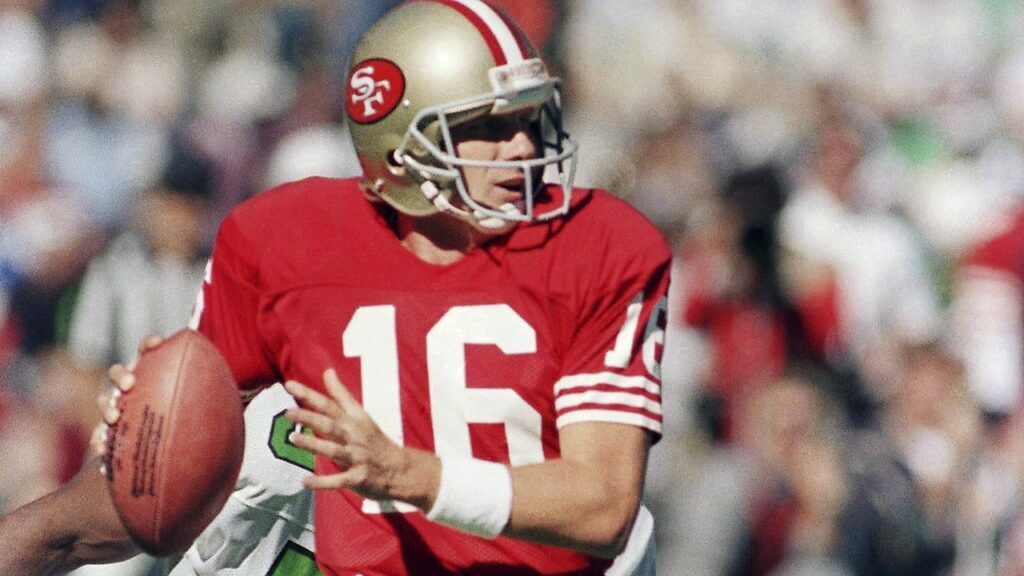
It may be easier to list the awards that Peyton Manning did not win. In the 2000’s, he won almost every conceivable accolade available to him. He was a 14-time Pro-Bowl nomination, a seven-time All-Pro and a record setting five-time league MVP winning his first in 2003 and last in 2013. He also has Montana beat in winning two Offensive Player of the Year awards and led the league in passing three times (2000, 2003, and 2013). Manning also holds records for the most passing yards and touchdowns in a single season; both set in 2013. He is also tied for the most touchdowns thrown in a single game with seven during that historic 2013 season. Manning would even match Montana’s Comeback Player of the Year award by winning it in 2012 after returning from his career-threating neck injury. All of this made his 2021 Hall of Fame induction a forgone conclusion.
Hank Concept
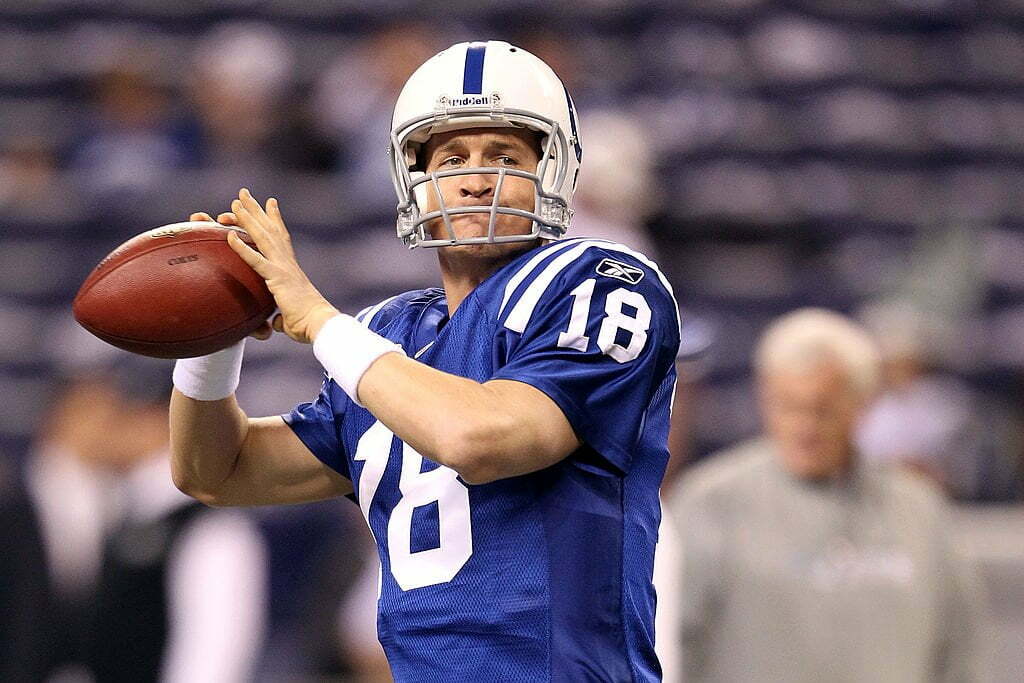
Montana was arguably the most decorated quarterback of the ‘80s and beat out other all-time great players for MVPs and other nominations. Unfortunately, that all pales in comparison when it comes to the dozens of trophies and records Manning owns. For almost two decades he was possibly the greatest offensive weapon in all of football and his resume reflects that.
EDGE: Manning
PLAYOFFS
Manning had his fair share of postseason success. He appeared in four Super Bowls and won two of them, winning MVP against the Bears. One cannot help but feel that Manning still fell short in his playoff career when compared to his regular season performances. His 14-13 record leaves much to be desired and no one can forget the beating his Broncos took against the Seattle Seahawks in 2013. His first three playoff appearances in 1999, 2000, and 2002 saw a young Peyton average only 186 yards across three consecutive losses where he only threw one touchdown. Perhaps some of this can be attributed to his constant playoff duels with Tom Brady, but his 13 playoff losses is one NFL record he is not proud to own.
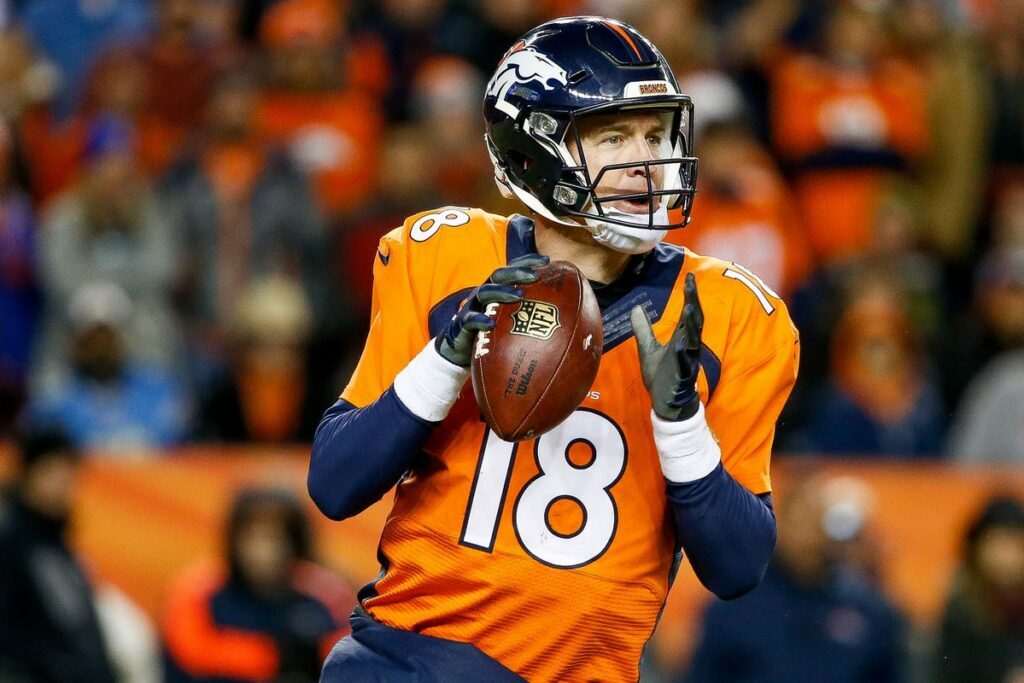
Whereas Manning was an unstoppable force who stumbled during the playoffs, Joe Montana built his legacy on being a clutch player when it mattered most. Many fans will point to “The Catch” in 1981 or “The Drive” in which he marched 97 yards down the field to win the 1988 Super Bowl as time expired. But his stats validate his legendary stories and moments. His perfect 4-0 record in Super Bowls is often heralded as his crowning achievement, but he also managed to throw 11 touchdowns to zero interceptions across his four appearances. He also increased his yards per game from 211 in the regular season to 251 per game in the playoffs as well as beating out Manning’s touchdown to interception ratio with a solid 45 TDs to 21 INTs. While Manning’s first three playoff appearances all resulted in losses, Montana would go on to win two Super Bowls across his first three playoff trips and finished his career with a post season record of 16-7 and the 2nd most playoff wins of all time.
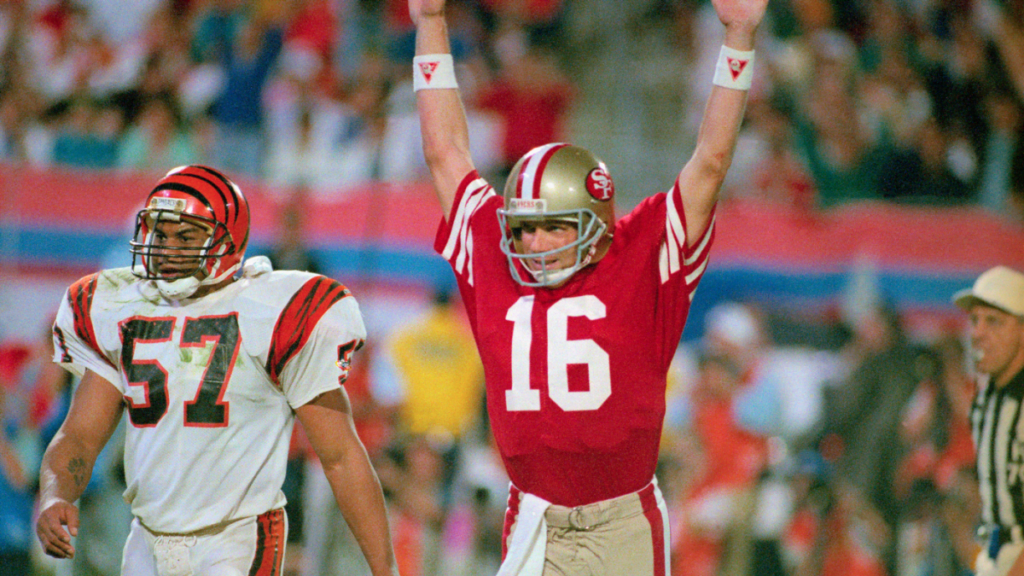
Manning had great moments in the playoffs but his record number of losses, embarrassment at the hands of the Seattle Seahawks, and his struggles during his last Super Bowl do not live up to the legend of “Joe Cool”. Montana simply elevated himself in all facets in the playoffs and was never rattled as he provided fans with some of the greatest moments in the history of the NFL.
EDGE: Montana
SUPPORTING CAST
There is no doubt that Joe Montana played with some top-tier icons of the NFL. At the top of that list is the greatest wide receiver in the history of the league, Jerry Rice. Rice holds records for most receptions, yards, total touchdowns, and 1,000-yard seasons. When Montana needed to move the ball, everyone knew where he was going. He also played alongside Ronnie Lott and Charles Haley while in San Francisco. These two Hall of Fame defenders provided a great compliment to the offensive talent in the Bay. The architect for these all-time players was Bill Walsh, a coach often heralded as one of the greatest to ever patrol the sidelines. Even during his time in Kansas City, Montana played with other greats such as running back Marcus Allen and linebacker Derrick Thomas. Outside of these legends other solid players such as Roger Craig and John Taylor played alongside Montana during his 15 seasons in the league.
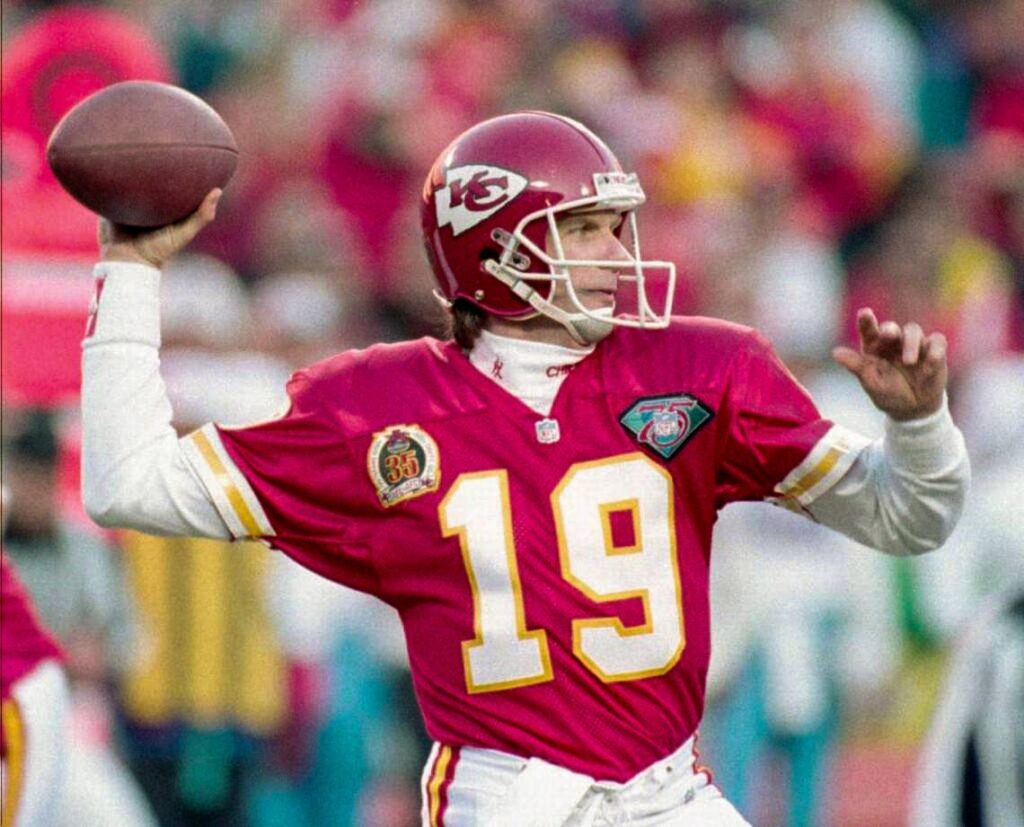
Manning was also fortunate to suit up with amazing players in both Indianapolis and Denver. During his time with the Colts, Manning had elite pass catchers in Marvin Harrison and Reggie Wayne. He also had solid running backs such as Edgerrin James and Marshall Faulk who alleviated pressure on the passing attack. Defensively, players such as Dwight Freeney and Robert Mathis helped balance out some of these insanely talented rosters. Just as Montana had a legendary coach helping orchestrate the organization, Manning worked under Hall of Famers Tony Dungy and Bill Polian. When arriving in Denver, Peyton was still well supported. Demaryius Thomas was a four-time Pro-Bowl wideout providing multiple thousand-yard seasons. Defensively, he was supported by a variety of All-Pro caliber players such as Von Miller, Chris Harris, and Aqib Talib. Regardless of which team he suited up for, Manning always had great players alongside him.

Montana did have help in the form of the games greatest offensive weapon in Jerry Rice, but Manning was constantly surrounded by incredible talent across two different teams. Ronnie Lott and Rice are arguably better than any player to every play alongside Manning, but the sheer number of All-Pros and Hall of Famers who assisted Manning is difficult to ignore.
EDGE: Montana
FINAL THOUGHTS
Each player dominated different aspects of the game. Manning mowed through the regular season with his arm talent and sheer statistical brilliance. Montana saved his best for when the lights where brightest on his way to a flawless Super Bowl record. Perhaps Montana would have posted greater numbers had he played during the pass-heavy modern era. Could Manning have produced a stronger playoff resume had he not played parallel to Tom Brady? Regardless, a winner must be decided on. If the fate of the season relied on a single, game winning drive it is hard to not select Montana. But when it comes to pure quarterback skill and singular dominance it is impossible to bet against “The Sheriff”.

